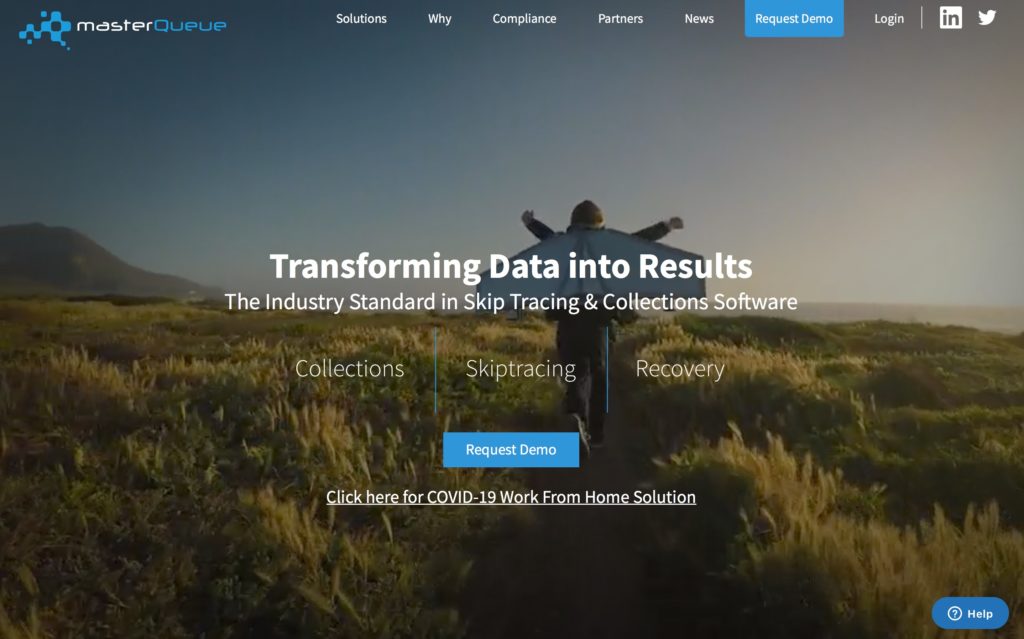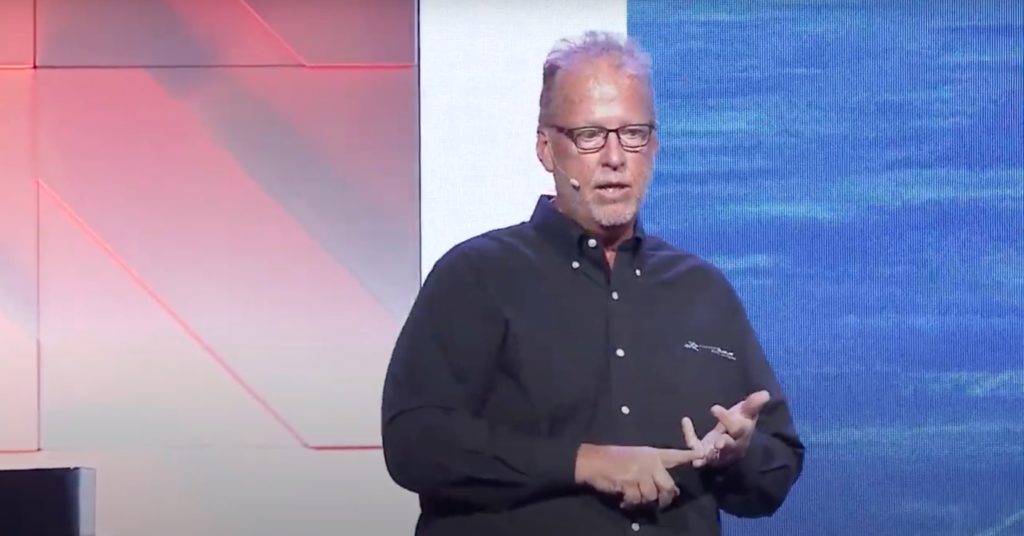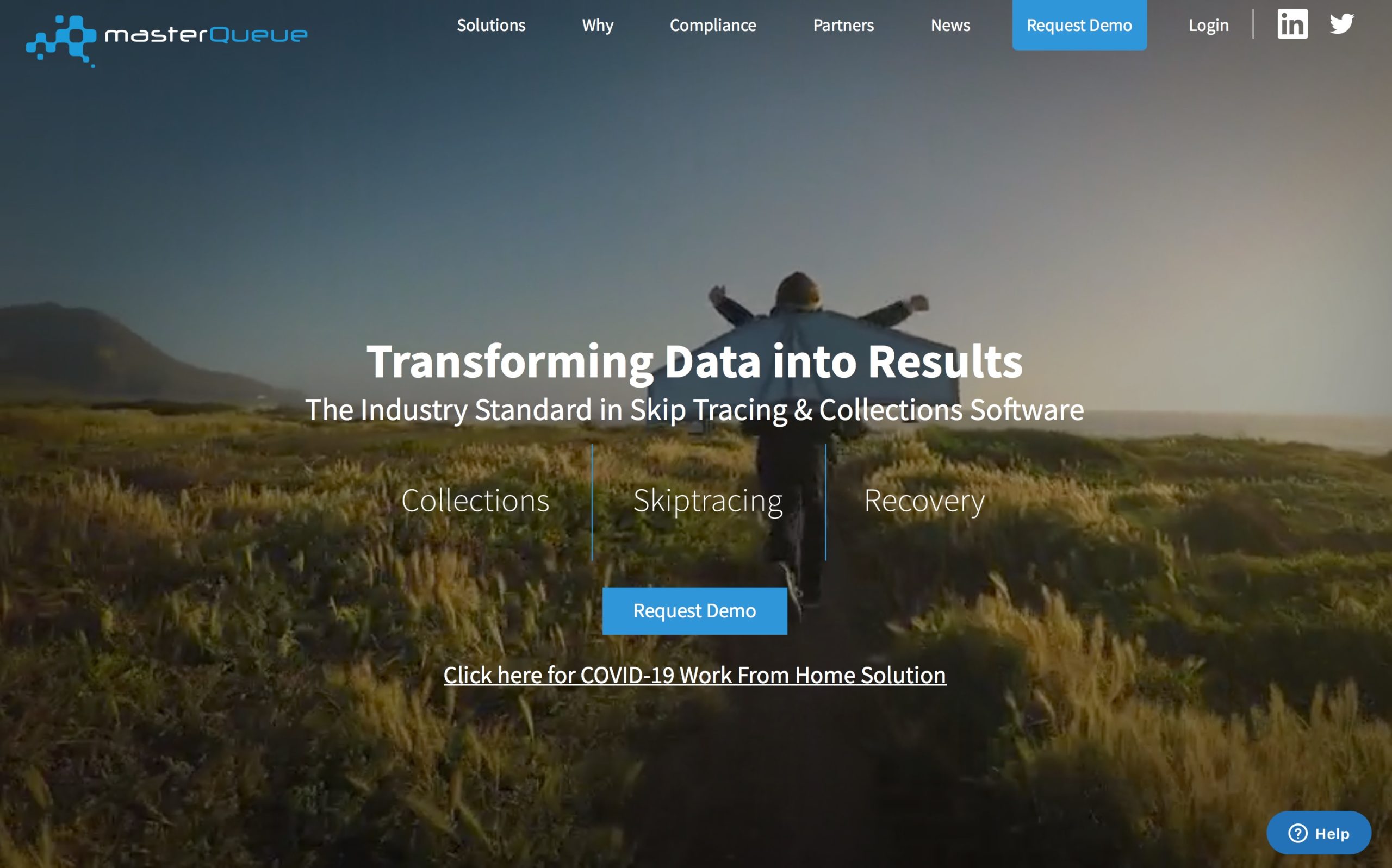
If auto manufacturers can make ventilators, and whiskey distilleries churn out hand sanitizer, then why can’t skiptracers be deployed to help put the “trace” in “contact tracing”?
“There’s an entire industry of seasoned skiptracing investigators that are out of work while debt collection is on hold,” President and CEO of masterQueue John Lewis wrote recently on his company’s LinkedIn page. Introducing his firm as a skiptracing platform used for contact tracing in debt collection, Lewis explained that when it comes to the “trace” component of the “test and trace” strategy to combat the spread of the coronavirus, masterQueue is your huckleberry.
“Many states are advertising the hiring of thousands of people to do the work these people are trained to do, and it should be done in a secure platform that’s turnkey and already built as this needs to happen now,” Lewis wrote, “with workflow automation, integrated click-to-dial recording with QA, regulatory compliance rule tracking and data privacy pieces built-in.”
“If you are a state that is interested in leveraging the experience of people who do this for a living,” he concluded, “let’s talk.”

Skiptracing is the art – and science – of finding an individual who is trying to avoid being found. The phrase itself refers to the slang term for fleeing a given area without leaving a trace: “to skip town.” Those who employ the services of professional skip tracers range from debt collectors and bail bonds agents to lawyers, journalists, and even members of law enforcement.
As you might guess, skiptracing involves accumulating, managing, and analyzing what can become massive volumes of information. Much of this data comes from incomplete or untraditional sources. But all of it needs to be verified, reviewed, and synthesized in order for skip tracers to gain actionable insights on their subjects.
masterQueue is a web-based solution that automates the skiptracing and collections process. The platform enables users to gather and organize publicly-available customer data, and integrate relevant state, Federal, and data privacy rules in order to remain compliant. Finally, masterQueue tracks loan portfolio, customer, account, employee, third-party vendor, and data provider metrics to provide robust reporting and audit functionality.

“If there are three things you remember from what I talk with you today about, it’s three words: gather, organize, and track,” masterQueue’s Lewis told Finovate audiences in New York last fall. “Think about it in terms of data. We launched out masterQueue platform at Finovate in the spring of 2011 to be able to help debt collection (companies) find anyone they needed to find and in order to do that you need to gather, organize, and track data.”
Traditional methods in the debt collections business are especially problematic not only because of the large volumes of data to be collected, but also because of new data privacy laws that mandate how data must be handled. This has been overlooked in some of the media discussions over contact tracing in the context of COVID-19. But for masterQueue, these concerns are central – and on-going. At FinovateFall Lewis explained how, years ago, one efficient strategy of information collection – leveraging road cameras to identify the missing vehicle of a delinquent borrower instead of engaging in an outdated, time-consuming plow through paper records – was undermined by the arrival of new regulations from the Consumer Financial Protection Bureau. He highlighted the importance of innovation in the regtech space in the face of the latest shift in the regulatory sands – the California Consumer Privacy Act – and reminded attendees of the cost of getting it wrong.
“From $22 million against Google to $5 billion against Facebook tells you the stakes involved in data privacy,” Lewis noted, comparing the penalty assessed against Google by the FTC in 2012 with the fines levied against Facebook by the E.U. just six years later.
In recent years, masterQueue has scored seed funding after being self-funded by its founders and a pair of strategic Angel investors for the first years of its existence. The amount of the investment was not disclosed, but the capital did enable the company to add to both its workforce and to its top line. “This (funding) allows us to double staff and increase our year over year Q1 revenue from 2018 to 2019 by eight percent,” masterQueue co-founder and CFO Perla Lewis said.
In addition to working with some of the largest financial institutions in the U.S., the company recently has forged strategic partnerships with firms like PassTime a leading GPS solution provider, and expanded its relationship with PAR North America, a business division of KAR Auction Services. Founded in 2011, masterQueue is headquartered in El Dorado Hills, California.
